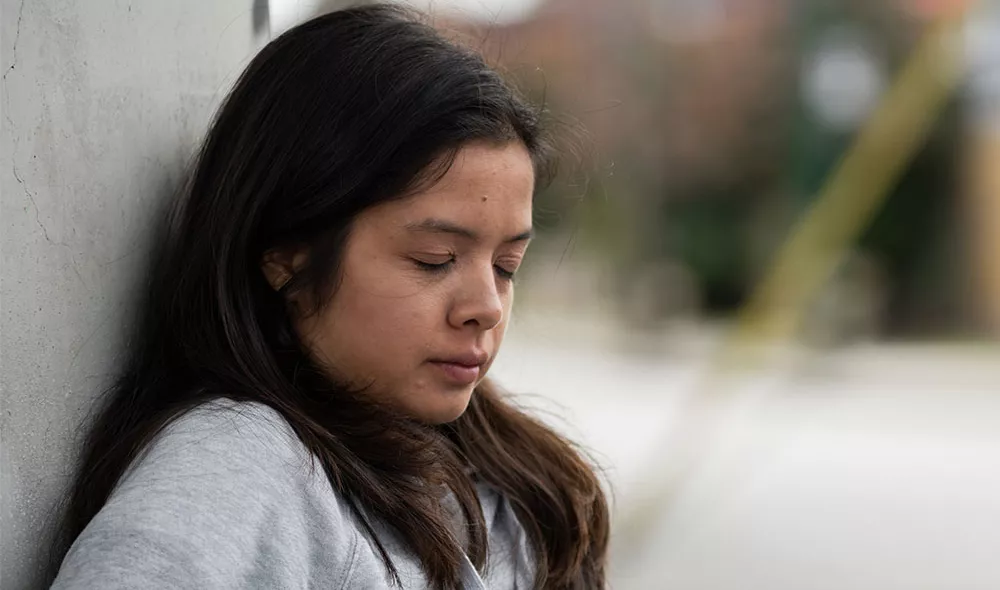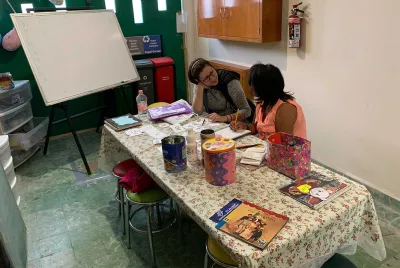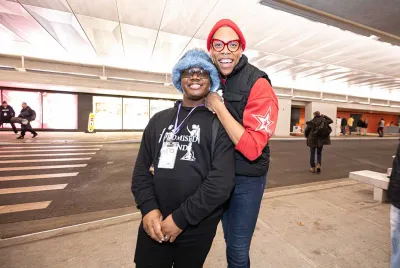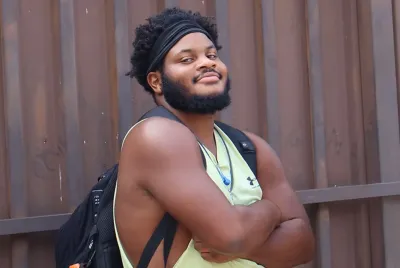Fighting Human Trafficking Begins with Listening to Survivors

When Covenant House New Orleans staff listen to a young person’s story of human trafficking, not only are they better equipped to immediately help the youth in front of them; they also stand ready to learn how to make our trafficking survivors program continually more effective.
Deep listening to survivors also positively impacts our work with anti-trafficking partners, says Sheri Combs, director of community and youth engagement at CHNO. “We’re constantly at the table to talk about best practices: What does that look like? We know because we’ve listened to our survivors to see how we can strengthen our program.”
It isn’t always easy, though.

Trafficking survivors are often reluctant to share their harsh experiences. It’s why our Covenant House New Jersey affiliate developed the Quick Youth Indicators for Trafficking (QYIT) tool, now employed by all sites across our Covenant House federation. QYIT consists of just four questions, the answers to which can help our staff readily discern whether there is reason to suspect a youth has been trafficked.
"I like the QYIT questionnaire because it isn’t intrusive,” Sheri says. And that matters to a young person who’s been abused and deceived by a trafficker.
“The questions are more conversational and make it easy for that victim or survivor to understand what you’re asking,” she notes. When it becomes clear that the youth has experienced trafficking, the questionnaire “leads to a larger conversation and makes it more comfortable for them to talk about it.” From there, our staff can take the appropriate steps to ensure their safety and open the door to healing.
Youth-Centered Impact
Centering our care for trafficking survivors on the youth themselves has allowed Covenant House New Orleans to build and share their expertise across Louisiana. “We’ve really led the way and continue to lead the way when it comes to how we respond to trafficking across the state: how we prevent it and the public awareness about it,” Sheri says.
“We’ve expanded our partners, we’ve changed laws and city ordinances, and we’ve been at the forefront of legislation to shut down the legalization of prostitution, which we just feel would be harmful to our youth,” she explains.
A trafficking survivor and once a resident of CHNO, Sheri serves on the Governor’s Advisory Board through the state Office of Human Trafficking Prevention. “There, we have the opportunity to identify certain service needs and gaps for victims and survivors of trafficking and write annual policy recommendations, which we’ve done every year for the past few years,” she says, “because we really, truly want to prevent somebody becoming a victim.”
All of that work, from providing the best care for human trafficking survivors to positively impacting the way the city, the state, and even, to some extent, the nation address the terrible scourge that is human trafficking begins with a listening ear and the intention to support that young person and all young people into healing.
July 30 marks World Day Against Trafficking in Persons.
- Around the globe, some 27 million people are exploited for labor and commercial sex, according to the U.S. Department of State’s 2024 Trafficking in Persons report.
- Increasingly, traffickers use digital platforms to recruit, groom, defraud, coerce, and exploit victims.
- At Covenant House, 1 in 5 of our U.S. and Canadian residents have experienced trafficking and more than 1 in 2 of our Latin American residents are survivors.
- Learn what you can do to help trafficked youth and survivors.
Get news, stories, and insights delivered right to your inbox.
You Might Also Like...
All news & insightsHelp Build Brighter Futures for our Youth
Your gift today provides services and support to young people on their journey toward sustainable independence and a hope-filled future.


